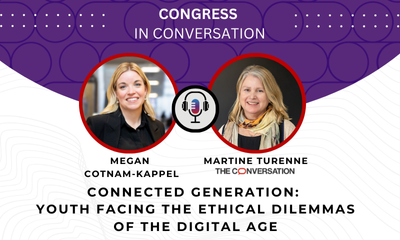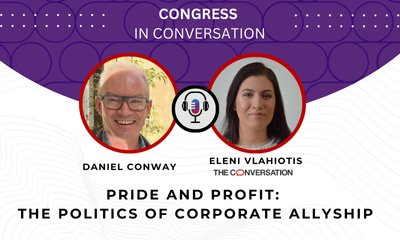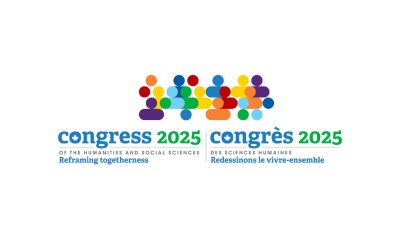VANCOUVER, June 1, 2019 — Social exclusion, academic integrity, and the place of essays in our tech-focused world are among the topics being discussed this week as the Congress of the Humanities and Social Sciences gets underway at the University of British Columbia. Canada’s largest academic gathering, Congress brings 8,000 of the country’s brightest researchers, thinkers, and policy-makers to Vancouver from June 1-7.
Over 5,000 pieces of research are being presented on a wide range of topics. Some of the education issues being explored include:
- Peers' Perspectives on the Social Exclusion of Children with Behavioural Difficulties
Children with behavioural difficulties have trouble developing positive peer relationships and are at a heightened risk of social exclusion. This study examines children’s beliefs regarding the social exclusion of children with behavioural difficulties.
June 5 — 9:45 - 11:00 am
- The Same, but Different: Understanding the Strategies of Historically Underrepresented University Students in Canada to Persist to Graduation
This research compares the challenges faced by three groups of Canadian undergraduates: Canadian-born visible minorities, immigrants to Canada, and Indigenous students, and the factors contributing to their persistence to graduate.
June 3 — 2:00 - 3:30 pm
- Where Have all the Essays Gone? Print-Based Conventions of Classroom Writing vs. Digital Writing Tools
This panel is a debate on the place of academic essays in today's university. Are digital forms and genres of more relevance to today's students? For Post-Millennials, digital technology is part of their entire memory. Can digital tools and classroom writing co-exist?
June 1 — 2:00 - 3:30 pm
- Frameworks of Accessibility: Academic Integrity Curriculum and Institutional Codes of Power
This project shifts the focus from what teachers would like to avoid – cheating or academic misconduct – to what they want to achieve – academic integrity. This work has helped researchers understand that academic integrity can reinforce privilege, while transparent instruction about academic integrity can simultaneously foster both belonging and accountability.
June 3 — 8:30 - 10:00 am
Congress is an annual gathering of over 70 scholarly associations, each holding their annual conference under one umbrella. This year’s theme is “Circles of conversation”, reflecting the need for dialogue, debate, and dissent within and across disciplines.
Congress is organized by the Federation for the Humanities and Social Sciences, which promotes research and teaching for the advancement of an inclusive, democratic and prosperous society. With a membership now comprising over 160 universities, colleges and scholarly associations, the Federation represents a diverse community of 91,000 researchers and graduate students across Canada. Congress 2019 is hosted by The University of British Columbia.
The Congress 2019 media kit can be downloaded here.
More information about the Federation and Congress 2019 is available online through their website, Twitter and Facebook.
-30-
For interview requests
Federation for the Humanities and Social Sciences
Nicola Katz
Manager of Communications
nkatz@ideas-idees.ca
Cell: 613-282-3489
University of British Columbia
Erik Rolfsen
Media Relations Specialist
erik.rolfsen@ubc.ca
Cell: 604-209-3048

Connected generation: Youth facing the ethical dilemmas of the digital age
← Big Thinking Podcast homepage Next episode → Introduction | About the guest | Megan Cotnam-Kappel's Research at Congress | Transcript | Follow us Introduction Welcome to Congress in Conversation, a special series presented by the Big Thinking...

Pride and profit: The politics of corporate allyship
← Big Thinking Podcast homepage Next episode → Introduction | About the guest | Daniel Conway's Research at Congress | Transcript | Follow us Introduction Welcome to Congress in Conversation, a special series presented by the Big Thinking Podcast...

